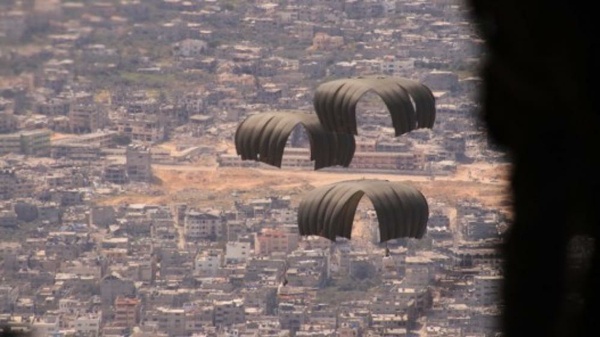
Gaza - Saba:
US Foreign Disaster Assistance Program Official Natalia Waxler said that airdrops are not the best way to aid Gaza.
In an article published in the Washington Post, the official stated that airdropping emergency food aid to the Gaza Strip is absurd.
"From my experience as director of the Office of U.S. Foreign Disaster Assistance, I can confirm that such operations are ineffective, extremely costly, and dangerous," the official said.
"Parachute drops from aircraft are the most unfair method of delivering humanitarian supplies," Waxler said.
"As proven in many war zones, it's the young, strong, fast, and heavily armed who get the supplies, either by reaching the platforms first or by forcibly seizing them later," she added.
"Without skilled relief personnel on the ground to collect and distribute food supplies fairly to children, schools, hospitals, the elderly, the wounded, and other targeted populations, these latter groups lose out and continue to starve. The official said that in a major study on airdrops she co-authored at the Institute for Defense Analyses, researchers indicated that the main benefit of airdropping supplies may be that it makes donor countries feel good, in addition to the high costs of this method.
Commenting on these "airdrops," Mohammed Abu Afash, director of the Medical Relief Society in Gaza, said in televised statements that "there is no alternative to distributing aid by land within the Gaza Strip," stressing that "airdropped aid is dropped in areas controlled by the occupation forces."
Abu Afash said that "airdropped aid is stolen and does not reach those who deserve it." Regarding aid distribution centers, Abu Afash said that "the Gaza Foundation does not bear any humanitarian character, as those in charge claim," stressing that "many are dying in aid centers due to the lack of ambulances and transportation."